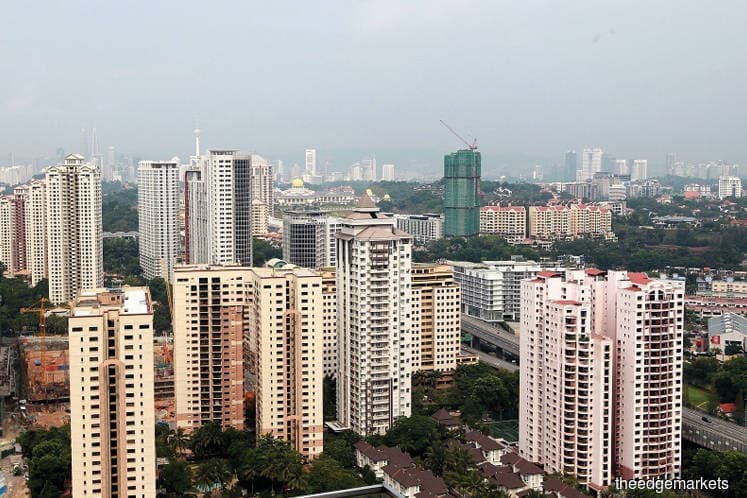
This article first appeared in The Edge Financial Daily on January 23, 2018
KUALA LUMPUR: The glut in high-end residential property market may lead to a downturn in price going into 2018, which could have a wide-ranging impact on the economy, according to Nawawi Tie Leung Property Consultants Sdn Bhd.
The general weak outlook for the residential segment, it said in a report released yesterday on the local property market, is likely to extend until at least the second half of this year.
Nawawi Tie Leung said this after noting that sales and new launches continued to slow last year, especially for high-end luxury property. Developers and buyers “remain highly cautious”, it said, as the high-end home segment is seen as increasingly saturated amid a challenging marketing environment and a mismatch in price expectations.
Though prices for high-end condominiums remained stable at RM762 per sq ft throughout 2017, up 2.7% year-on-year (y-o-y), it said rentals for high-end condominiums fell 2.3% y-o-y to RM3.06 per sq ft per month.
It also noted that 9,693 units were initially expected to be completed in 2017, but only 5,315 units or 55% from 11 high-end residential projects were completed. Going into 2018, some 6,176 units of high-end condominiums are expected to come into the market, with half of them in Kuala Lumpur city centre.
“Concerns over the affordability of private homes will be a persistent theme for the housing sector and a source of political discontent especially for those living in urban areas,” said Nawawi Tie Leung, expecting the residential market overall to remain subdued throughout 2018.
“The increase in home prices is likely to continue to moderate, if not weaken, as developers and property speculators unload unsold completed stock,” it added.
Impact of new office freeze seen over medium term only
In the office segment, Nawawi Tie Leung said the recently announced freeze on new office development approvals will mitigate the current oversupply to a certain extent, but the impact will only be felt over the medium term.
“This is because the pipeline supply currently under construction remains high and works are not likely to stop completely. Beyond 2017, the KL office market is likely to remain subdued due to the supply glut, with developments such as TRX (Tun Razak Exchange), Merdeka PNB 118, and Sapura Tower (KLCC Lot 91) nearing completion.”
In the fourth quarter of 2017 (4Q17), Nawawi Tie Leung noted the average occupancy rate of office space declined to 80.4% from 81.4% in 3Q17, as weaker market conditions persisted despite a recovery in economic growth and oil prices. On a y-o-y basis, the occupancy rate trended downwards from 82.3% in 4Q16.
In the retail space, it said more retailers are reviewing their business strategies — including downsizing — considering the challenges in the retail sector.
“Retail Group Malaysia (RGM) had estimated a 2.2% [retail sales] growth for 2017 — the third downward revision since its initial estimate of 5% made in late 2016. The upcoming supply in 2018 further adds pressure to the rentals.”
Some selected upcoming malls in the Klang Valley this year are Tropicana Gardens Mall, with a net lettable area of one million sq ft, Central Plaza @ i-City (one million sq ft), and Damansara City Mall (2.5 million sq ft).
“Nevertheless, RGM also projects a 6% growth in retail sales for 2018, but reaffirms the Malaysian retail market’s recovery next year is highly dependent on the outcome of the [upcoming 14th] general election, external economic demand and the ringgit’s performance,” it added.
Total retail stock in Kuala Lumpur remained at 31 million sq ft, it said, with no new completion in 4Q17, while occupancy of retail malls in Kuala Lumpur hovered at 87%.
In terms of investment sales within the property sector, the market outlook was boosted by Malaysia’s economic recovery as shown by a strong gross domestic product growth throughout 2017, and an improving ringgit. Investment sales grew 7% y-o-y in 2017 to RM4.45 billion from RM4.16 billion.
In 2018, factors such as a property glut, the prospect of an interest rate hike and banks scrutinising property loans under tighter lending guidelines will dampen demand for property.
“With the general election expected to be held in early 2018, we expect investment sales to slow down until the second half of 2018, after the election,” Nawawi Tie Leung said.
It also noted that local real estate investment trusts were the more active buyers in 2017, with their acquisitions spread across different market sectors. “In contrast, foreign investors were net sellers.”